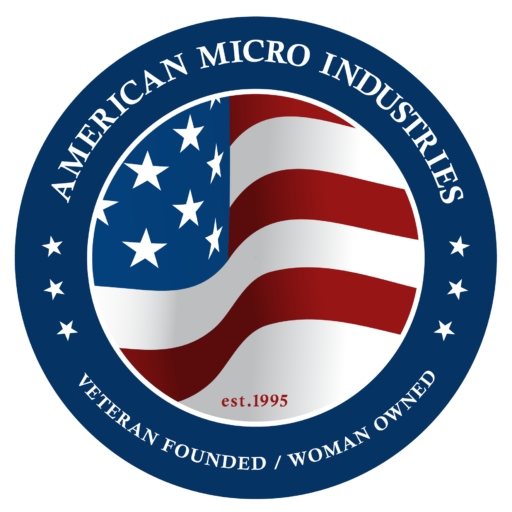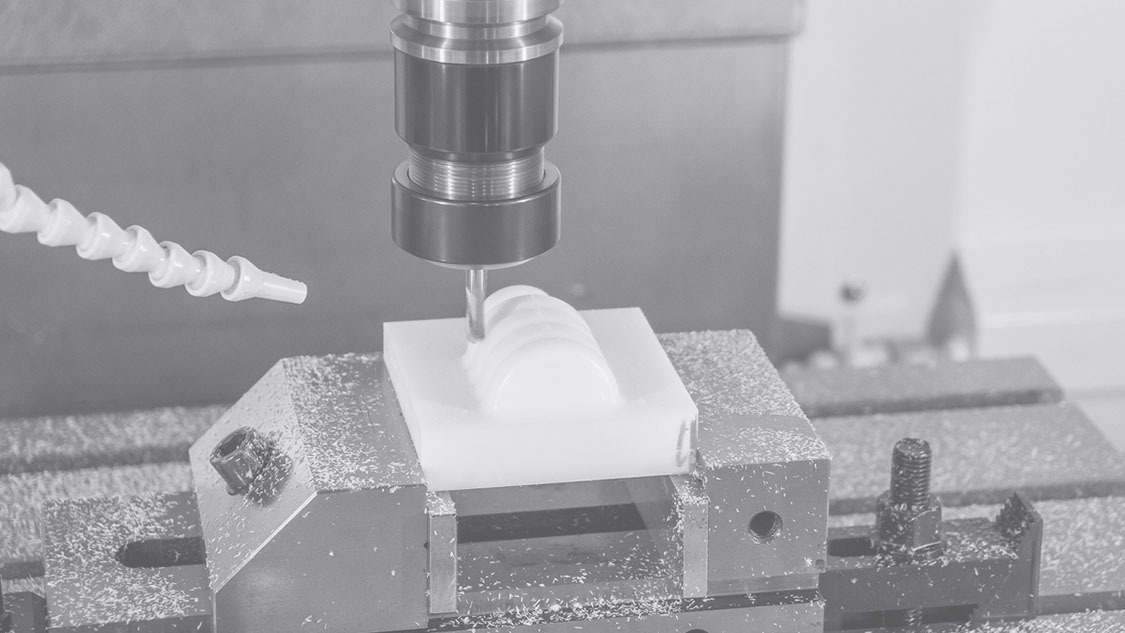

Machining is a process that uses computer programming to cut materials rather than relying on manual cutting. This removal process can also be referred to as subtractive manufacturing since the machine removes material from the part. These plastic materials are then cut into the desired shape. Machining is a major technique used in many manufacturing processes.
Computer numerical control (CNC) machining is used in many industries for mass-produced pieces that require exact measurements. This computer-aided technique is popular in military and aerospace industries where materials have to be precise.
There are substantial manufacturing benefits to CNC machining. Since the process is automated, every cut is the same, ensuring better quality control for mass-produced products. These machines are also practically self-run, so workers can distance themselves from the machinery while they are operating. Meanwhile, automating your manufacturing process allows you to grow your business significantly.
CNC machining is an automated way of mass-producing components. These machines work with different materials like plastic, metal and wood, and they produce pieces more efficiently than other technologies. People are turning to these machines to create complex shapes without ever missing a detail.
Time and time again, companies are choosing plastic as the material to produce their products from. Plastic material continues to be a popular choice for manufacturers since plastic is cheaper and more durable than other options. Manufacturing plastic pieces with CNC machines give you the power to build the desired part precisely to its specifications while staying at a lower cost.
Along with being more economical, dealing with plastic materials gives you faster turnaround times and tighter tolerances. This feature makes them perfect for high-precision manufacturing, where prototypes are critical.
These benefits make plastic a popular material for prototyping and customized parts. Even manufacturers who do not have much experience with machinable plastics find these materials easier to deal with when using CNC machining. The selection of plastic material is a critical consideration for most manufacturers.
Some of the most popular types of plastic on the market today include:
Each type serves a different purpose and withstands various environments like high temperatures or high impacts.
Those plastic types can meet any customer’s need for almost any situation. A large selection of plastics for machining are available to manufacturers, and each has its own benefits. Since one of the primary aspects of the material selection for your machining applications includes ensuring the plastics you select feature the right qualities, you must know the main advantages and disadvantages of popular CNC plastics.
Let’s review some of the pros and cons of the strong plastics materials that are great for almost any situation.
Acrylic, commonly referred to as “plexiglass,” is a polymethyl methacrylate synthetic polymer that offers high impact resistance and will not shatter. Acrylics have higher transmissibility of visible light than glass. On the other hand, they are susceptible to cracking and are more easily scratched.
People tend to use this material for optical transparency or as a less durable, more affordable alternative to polycarbonate. That’s partly why they should only be considered for low-stress applications like solar panels.
Sometimes called polyethylene high-density (PEHD), high-density polyethylene refers to a thermoplastic polymer in the polyethylene family. This impact-resistant material features corrosion and chemical resistance, a low moisture absorption rate and high tensile strength.
Since HDPE has a higher density and offers high impact resistance, companies regularly use it to create construction components such as pipes. You can also find companies using it to develop commercial containers and home goods, such as cutting boards, garbage bins and laundry detergent cartons. While this plastic material has many advantages, it has poor UV resistance. In CNC machining, its often used for prototyping and casings.
PVC is a rigid thermoplastic polyvinyl chloride polymer with excellent resistance to acids. In addition, PVC is usually readily available, very dense and inexpensive. Its resistance to deformation is one of the biggest reasons for its popularity. Its working temperature of 176°F gives it poor heat stability, and it emits toxic fumes when melted.
Due to PVC’s incredible versatility, the material can be used across a range of industries, including construction, automotive and plumbing.
PVDF is a solid and rigid polyvinylidene fluoride polymer typically used in high-tech applications like chemical processing equipment. Because of its high purity, it has abrasion, chemical and flame resistance. Any processing machine working with this plastic must be spotless to maintain its purity.
PVDF is used as piping and internal coating due to its resistant characteristics.
Polycarbonate is a group of thermoplastic polyesters that is fire-resistant and virtually unbreakable. Its light weight makes it sustainable and easy to process. However, it is susceptible to the degradation effects of ultraviolet (UV) light.
This plastic is great for products like bullet-proof glass, bumpers and LED screens. That’s because these products need plastic with high strength and high transparency.
Polypropylene (PP) is a thermoplastic polymer that’s resistant to chemicals and has great fatigue resistance. It’s popular in many applications because of its adaptability to function as a plastic material and as a fiber.
PP plastics are widely available and affordable. It’s often used in packaging for consumer products and in automotive manufacturing.
Teflon is a polytetrafluoroethylene synthetic fluoropolymer that has an extremely hot and cold resistance. It’s commonly used in bushing and bearing applications and features high dielectric strength. It is subject to creep, cold flow, and compressive stress, which compromises seal integrity.
Teflon is ideal for pans, lubricants and seals or gears because of its high machinability.
UHMW is an ultra-high molecular weight polyethylene thermoplastic that’s very tough with the highest impact strength of any thermoplastic. It’s comparable to Teflon because of its strength, chemical resistance and very low coefficient of friction.
UHMW has many applications in the food and beverage industry because of its resistance to factors like chemicals and odor.
The selection of a plastic material depends on the application and industry. CNC plastics are applicable in the aviation and aerospace, medical, defense, automotive, electronics and marine industries. These fields have different requirements for their products which is why certain plastics work better than others. Some plastics are better for extreme durability situations, while others work better in everyday applications.
Now that you’ve reviewed our plastic selection guide, turn to American Micro Industries for your plastic machining needs. Our experienced personnel and advanced equipment can easily handle any of your plastic machining requests and recommend materials for your application. Since we work with various industries and use only the best plastic for machining, we’re confident we can deliver high-quality parts and components for your applications.
Learn more about our plastic machining capabilities today. If you have any questions or want pricing information, please feel free to contact us or request a free quote!